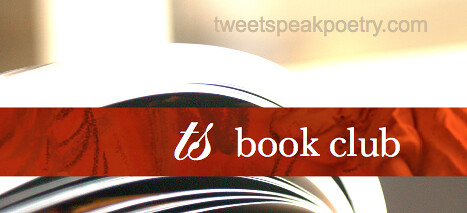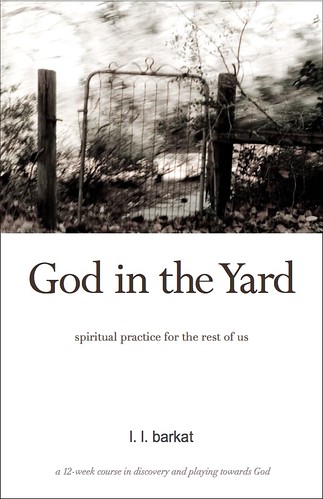Polyculture

These days, it's not uncommon for farmers to practice monoculture planting. Huge fields of rippling corn and shaggy soybeans carpet the landscape. This is encouraged by U.S. farm policy, which supports commodity crops and, unfortunately, can undermine farmers in other countries. (Ironic, isn't it, that feeding ourselves and our animals can cause hunger in other places?)
But monoculture has other effects too. According to small organic farmers like Wendell Berry, monoculture ultimately creates a less stable, more vulnerable agriculture. For instance, monoculture often contributes to soil erosion, pest increases, and loss of biodiversity.
The alternative is polyculture. Indigenous peoples, like certain native tribes, practiced polyculture by planting squash or beans in their corn fields. And some modern African farmers are planting trees near their fields, because they've discovered this is beneficial.
As a writer, I'm trying to learn something from this monoculture/polyculture reality. For, while it's tempting to be monoculture— to knock at the same comfortable doors both in how I write and who I write for— I believe a more stable career will take risks. So I'm aiming to be a writer polyculturist.
Door Photo by Gail Nadeau. Used with permission.
Labels: farming, life management, Wendell Berry, writing















26 Comments:
Ooh, I like that. And bring on the polyculture, 'cause I love your writing. *smile*
LL,
Love the analogy and the link back to your writing. From what I've read on this blog, you do a great job broadening your horizons.
Another twist on monoculture/polyculture is in technology where someone once wrote a seminal paper on how monoculture from a single vendor (like Microsoft) can lead to poorer security. The belief is that once compromised, it becomes easy for the security breach to be magnified.
Perhaps of no relevance but your use of the monoculture term brought it back to me
What a great connection to writing here. If I get too swept up in one project, I do find that my thinking and writing becomes rather flat. And yet when I try to do a variety of things, I get really distracted. The thing about farmers and polyculture is that they are so intentional -- putting things together that work well together rather than compete or harm each other. I think this is a good expansion of the metaphor for my writing. Intentionality!
Monoculture/polyculture. I remember seeing a homogenous, cookie-cutter church a long time ago, and even as a new Christian, I could sense that something didn't seem quite right.
l.l.- you opened the doors here....i think the monoculture/polyculture analogy could be used in SO many areas!!
but, sticking to farming, just a good reminder to keep supporting our local farmer's market and grocery that carries organic produce, eggs, and beef from small, local farms. i'm willing to pay a little extra for it. the whole factory-farming in general is something that seems bad to me in many ways.
Very interesting how you connect your writing with the agriculture of today. I am not sure if it is true, but I heard somewhere to have different seeds at different times of the year...like corn one season and wheat the next???
Blessings to your evening and always.
Andrea... thanks. So, that makes it mutual.
Andre... oh, terrific! A technology analogy.
I like that very much. It would be fun to make this a game and see how many examples from different industries/life realities we could come up with to illustrate the same point. (I doubt Parker Brothers would want to market the Polyculture game, but I'd enjoy playing it just among friends! Oh, which reminds me that I forget to extend my standard invitation. Anyone who posts on this topic can let me know and I'll link to the post.)
Charity... so what works well together for you? Curious.
Craver... invasion of the Cookie Cutters. Shiver.
Blue... you might just enjoy my last bible talk that can be viewed on the llbarkat.com site. I got into the factory farm thing (quite by accident... I hadn't really planned to... but it was a real eye-opener). The talk is called, "The Donkey, The Horse, and Old McDonald."
Eph... yes, one can plant winter rye in the fall and plow it into the soil in the spring, before planting something completely different. Polyculture is even more interesting, because it focuses on a diverse crop each season rather than just rotation from season to season. The people who do "permaculture" are particularly interesting. Pigs in the orchards. Chickens in the fields. Squash under the corn. And so forth.
I like this. The life and times of a polyculturist writer.
L.L., That is awesome. I hope I can learn from you. Though I'm resigned to trying to do well the humble, simple thing I do. Everyone has their big or little niche (not little, necessarily at all, in God's eyes). But this poly versus mono-cultural aspect you bring up, I find simply fascinating! Thanks so much. And keep it going.
Years ago we were incouraged to grow victory gardens now we are incorage to grow concrete Here in Illinoide big business farms the land and the small truck farmer is a novelty to visit under the pisscasso
Thanks for teaching me something new once again. You definitely have a well rounded blog with lots of different topics :)
l.l.- i linked over and read that bible talk....... WONDERFUL!!!!! that needs to be a blog post so more can read and ponder it.
i understand stephanie, as my sister and i did an end-of-semester project on vegetarianism vs. meat-eating for an ecology class.... we compared costs, effects on the environment, and treatment of animals. it was during that time, i saw factory farms from the inside, for the first time. i was horrified and repulsed and it brought me to tears also. i grew up on a farm....with chickens, cows, pigs, etc, and i always got attached to each animal. i was mortified to see how animals were kept and treated on these factory farms.
i REALLY think that if most people saw the videos or toured a factory farm, they would feel the same. people just don't know where their meat comes from. i didn't before i did that project.
and not only meat, but eggs.....
a good site here: www.wegmanscruelty.com . just watching the trailer gives you a good idea of how these egg-laying chickens are raised on a factory farm.
i DO eat meat, but now try to make sure i buy free-range....both meat and eggs.
Heather... hey, maybe I'll use that as a book title some day!
Ted... there is so much to fascinate me in this world. Farming is just one little thing, and it's so big.
Lloyd... that sounds too sad, though I like the thought of Picasso.
Stephanie... and you will teach me more about animals as we go along, yes? I hope so.
Blue... oddly, I'm not much of an animal lover, but I was sickened when I read Dominion. To think that this is how we treat God's great gifts to us. It just so happens that me being veg. helps to make things simpler in this regard, but I only started that for health & beauty reasons. Anyway, now you've got me thinking about eggs again. I've reduced our consumption quite a lot. And the organic farmer I interviewed (See "Apple Lies") noted that "free range" rarely means anything except that the birds or animals saw air for two minutes on the way to slaughter.
Anyone got good ideas for egg substitutes in baking?
Oh, that picture is so pretty!!!
L.L., (and others)
My wife, Deb, went vegan a few years back. She used to have congestion for weeks each winter. But not so anymore. I went along on the ride, not being as strict on it, as she. But feeling better, myself.
We are a little looser on it now. We'll eat something served to us, or sometimes break it, when something is available at a gathering.
I do think eating veg or vegan (vegan=no meat, no dairy) is healthier. And going organic on whatever you do eat (especially organic from an area farmer, than you know from them what the "organic" actually means; standards seem to vary).
Thought I'd drop that one in there.
LL -- Still figuring that out!
Your blog feeds me, via both words and visuals. Thanks.
Polyculture writing... hmmm. Great point! I can see how this could improve one's writing.
By the way, after reading your blog I always come away with something significant to ponder.
Thanks!
l.l- yes, on what "free-range" can mean....also "all natural" and "organic".....
chickens can still bein battery cages and the eggs be labele" "natural" or "free-range"...just because they are fed grain.
eggs need to be labeled "cage-free"....luckily, we have a local mennonite run store who sells eggs, dairy, and meat products from local farms and ensure they are truly "free-range" and hormone-free. but if you buy at a larger grocery-store, it's a little more iffy.
ooh, ooh, I want to play.
Example of polyculture for me:
-While being a mom is my primary job -and top priority, it is important for me to have other activities I'm involved in (mom's group, volunteering, even a little consulting for non-profits). It helps keep me sane, and makes me a better mom.
-At my undergrad college, we were required to take some courses outside of our major (liberal arts college). Even pre-med students had to make time to fit in a few of those art and history type courses. In the end, this small requirement helped differentiate those students from their competitors for slots in medical school because while they excelled in their field, they were also well-rounded.
-In inviting people to a dinner party I often tend to invite the same people with the same interests. When I am intentional to invite a few people who are different, it always makes the conversation so much more interesting.
-Lastly, in my former job, I was involved in the hiring process. Obviously we looked for experts in their fields - but for the sake of our teams, we also needed those experts to be people of different backgrounds, personal interests and who thought differently. It increased performance and innovation. Often the engineers who were deep in their technical field, but who also exercised the creative sides of their brains, too (through art, writing, etc) were the best candidates for mangement and leadership positions.
oh and PS - It was neat to see this concept in action when we were in Africa. We worked with a team who taught the farmers how to plant other crops amongst their banana trees to bring greater productivity as well as stability. It was amazing to see the difference between crops where that had been done, and where it had not.
Angela... yes, isn't it? I asked Gail what it is. Apparently it's a photo of a wall of murals on an abandoned building.
Ted... that is wonderful that you are able to take care of yourselves in this way, while being flexible for community sake.
Charity... when you figure it out, I hope to hear more! For me it is so far coming out like this: poetry for fun, speaking for ministry, blogging for freewriting and community, writing a book for money (yeah, right!).
Blue... okay, I'm going to look for cage-free. As well as cut my consumption. Here's something I've noticed too... the "questionable" eggs have more fragile shells, so if I can't be sure by the labeling, I always find out when I get shell and egg all over my fingers!
San... and thank you for your expression of gratitude.
S. Hunt... that's what I love about blogs... I'm always learning something new from someone.
Spaghetti... I love all your polycuture ideas. Especially the one on hiring. And I'd love to hear more about those African farms. Tell us more! Sights, smells, sounds... (how about a post of your own? :) Oh, and I think you won the round.
Another wonderfully thought-provoking post! This can be applied to at least a few areas of my life.
Since you mentioned writing, that resonated with me: always be open, always stretch myself, try exploring some wild, uncharted territory (only being a novice amongst writers, it's all wild & uncharted territory to me now).
I also thought of the people amongst whom I "plant" myself. Do I want to be monocultural here & include only those in my life who look, act, & think like me, those who will agree with whatever I say and do? Or like the earth, will it be more beneficial to be interspersed amongst those who challenge my ideas and teach me to view the world around me a bit differently?
I love your posts because they always lead me to more questions.
Thinking, thinking ...
Kirsten... so are you trying to explore writing? If so, what has led you to this place? I like your thought about who I surround myself with. The polyculture, and particularly permaculture, idea suggests that there is mutual benefit in such arrangements. Where are you finding polyculture? Or is it just a goal at this point?
LL - I posted something on my own blog in response to your comment, but I wanted to put something here too since you asked.
Mainly I'm finding polyculture by deliberately engaging with people who I know have different backgrounds, personal philosophies, or spiritual beliefs than I do. When I'm unchallenged, I feel like I start to wilt in a way.
And as you've already learned, I am exploring writing. It's been a long journey to it (one that started in childhood) and that I have been trying to dodge my whole adult life (a story unto itself). God has done everything but put blazing letters in the sky for me. I'll be sure to post something in the future about how that journey started & where I am now.
I love the picture of the seedling!
Post a Comment
<< Home